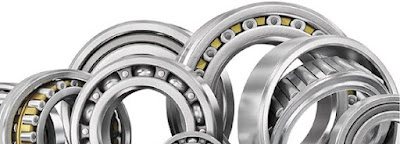Pitfalls when choosing bearings
Bearing selection is essential in the manufacturing industry, as it directly impacts the performance, reliability, and lifespan of machinery. However, with the vast variety of available bearings on the market, choosing the right one can be a daunting task. Moreover, selecting the wrong type of bearings can lead to a range of issues that can significantly impact machinery performance and cause significant financial loss for your business. Therefore, it is essential to understand the common pitfalls when choosing bearings and how to sidestep them. In this blog post, we will explore some of the most critical factors to consider when selecting bearings for your machinery, and highlight some of the common mistakes to avoid. We will also provide insights into the various types of bearings available and their specific applications, as well as techniques for determining the correct bearing size and configuration. With this knowledge, you will be able to make better-informed bearing choices, optimize machinery performance, and avoid costly downtime and repairs. Join us as we navigate the world of bearings and discover
1. Choosing the wrong type of bearing for the application can result in premature failure.
When it comes to choosing the right type of bearing for a specific application, it is imperative to consider various factors. One of the most common pitfalls when selecting bearings is choosing the wrong type of bearing for the intended application. Using a bearing that is not well-suited to the application can lead to premature failure and potentially costly downtime. This can be exacerbated by harsh working conditions, high speeds, and heavier loads than anticipated. It is essential to consult with industry experts and consider all the potential variables when selecting a bearing for a specific application to ensure its longevity and reduce the risk of failure.
2. Not considering the load capacity of the bearing can lead to excessive wear and damage.
When selecting bearings for a mechanical system, it is essential to pay close attention to the load capacity of each bearing. Not considering this factor can lead to excessive wear and damage, ultimately resulting in costly repairs and downtime. Each bearing is designed to operate within a specific load range, which if exceeded, can cause premature failure. Before selecting a bearing, it is important to accurately calculate the load capacity required for the application and choose a bearing that can comfortably handle that load. Failure to do so can result in bearings that fail early, leading to costly replacements and loss of productivity. Therefore, it is crucial to take the time to carefully assess the load capacity requirements and select bearings that meet those specifications. By doing so, you can ensure that your mechanical system operates efficiently while avoiding costly maintenance and downtime.
3. Overlooking the importance of proper lubrication can cause bearings to fail and reduce overall machine efficiency.
When selecting bearings for your machinery, it is important to avoid certain pitfalls that could compromise their performance and longevity. One common mistake that many manufacturers make is overlooking the significance of proper lubrication. Bearings that are not properly lubricated can fail prematurely and cause a reduction in overall machine efficiency. Without proper lubrication, the friction caused by continuous operation will cause wear and tear on the bearings, resulting in reduced performance and a shorter lifespan. Therefore, it is essential to ensure that the bearings you choose receive adequate lubrication to keep them running smoothly and efficiently for the duration of their intended use. By avoiding this common pitfall, you can help to ensure that your machinery operates at peak performance and provides reliable and consistent results over time.
4. Ignoring the importance of proper installation and maintenance can lead to costly repairs and downtime.
When it comes to choosing bearings, it's important to consider not just the initial cost, but also the long-term maintenance and repair costs. One common pitfall that many people fall into is ignoring the importance of proper installation and maintenance. While it may be tempting to rush through the installation process and skip regular maintenance checks, doing so can lead to costly repairs and downtime down the road. Bearings that are not installed correctly or are not properly maintained can wear out and fail, leading to equipment breakdowns and expensive repairs. To avoid this pitfall, it's important to invest in proper installation and maintenance procedures, which may include regular lubrication, alignment checks, and bearing replacements as needed. By doing so, you can avoid costly downtime and keep your equipment running smoothly for longer.
5. Choosing low-quality bearings can result in poor performance and reduced lifespan.
Choosing the right bearings is crucial to ensuring optimal performance and longevity of your machinery. While cost may be a factor, it is important to remember that cutting corners by choosing low-quality bearings can result in poor performance and reduced lifespan. Many low-quality bearings are made from cheaper materials and have less precise manufacturing techniques, leading to inconsistencies and decreased performance. Over time, this can lead to increased wear and tear, premature failure, and ultimately, costly repairs. It is essential to invest in high-quality bearings, even if it means paying a higher upfront cost, in order to ensure the longevity, efficiency, and reliability of your equipment.
In conclusion, choosing the right bearings for your application is crucial for overall performance and longevity. Falling into the common pitfalls such as ignoring load capacity, disregarding environmental factors, or choosing the lowest prices over quality can lead to costly equipment failure and downtime. It's important to work closely with a trusted bearing supplier who can provide expert guidance and offer a wide selection of high-quality bearings that meet your specific requirements. Taking the time to carefully select the right bearings can ultimately save you time and money in the long run.



Megjegyzések
Megjegyzés küldése